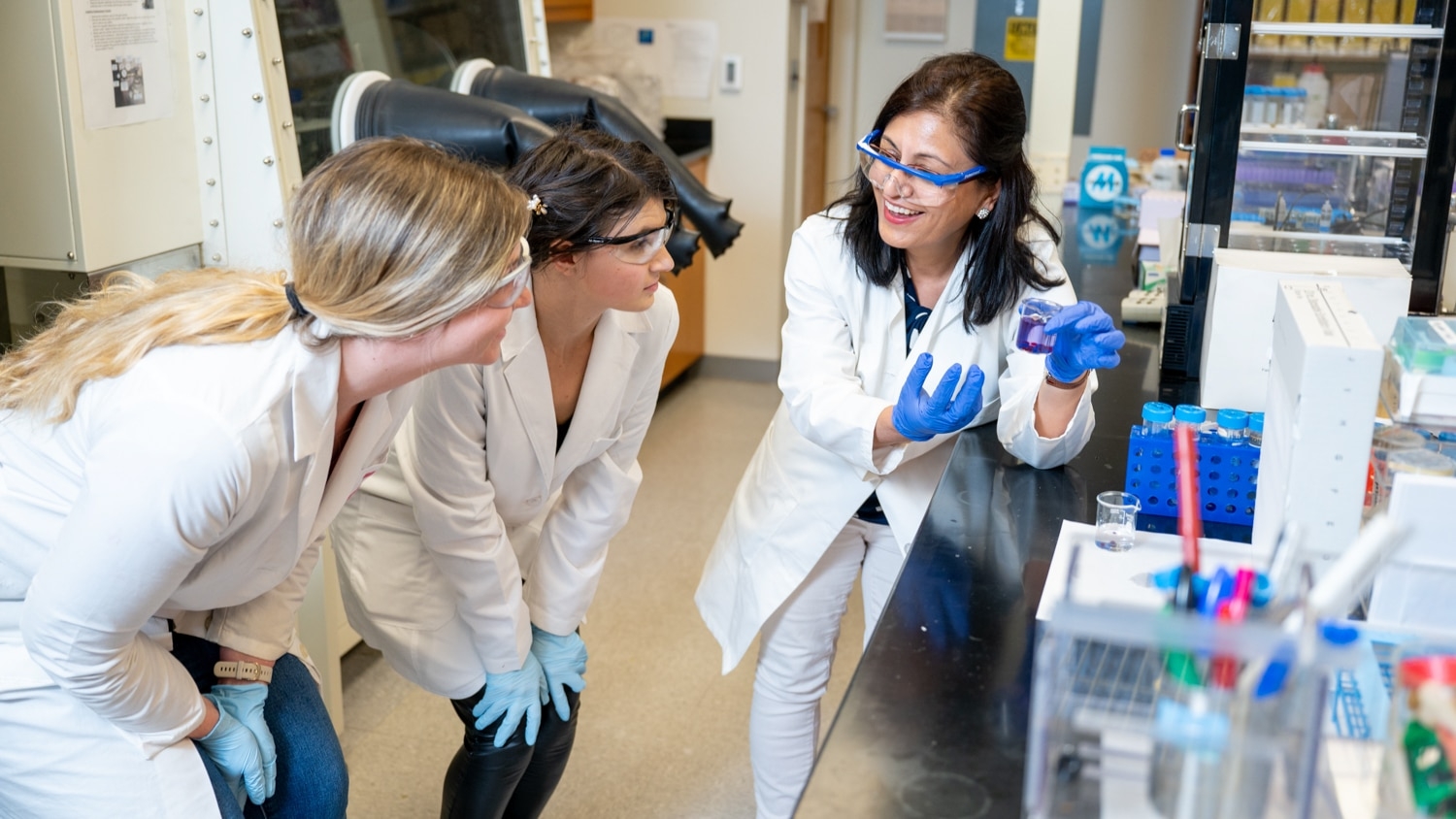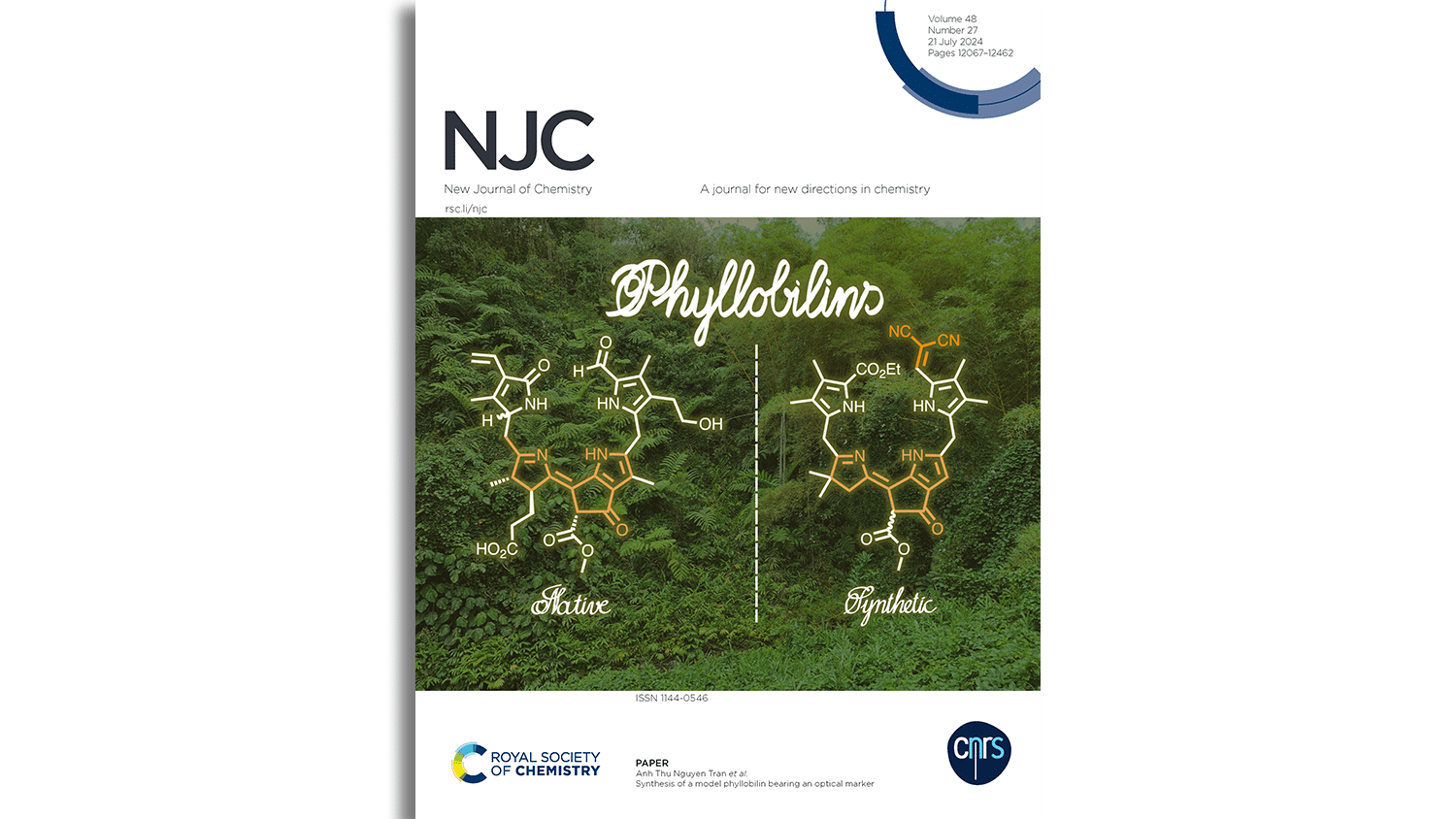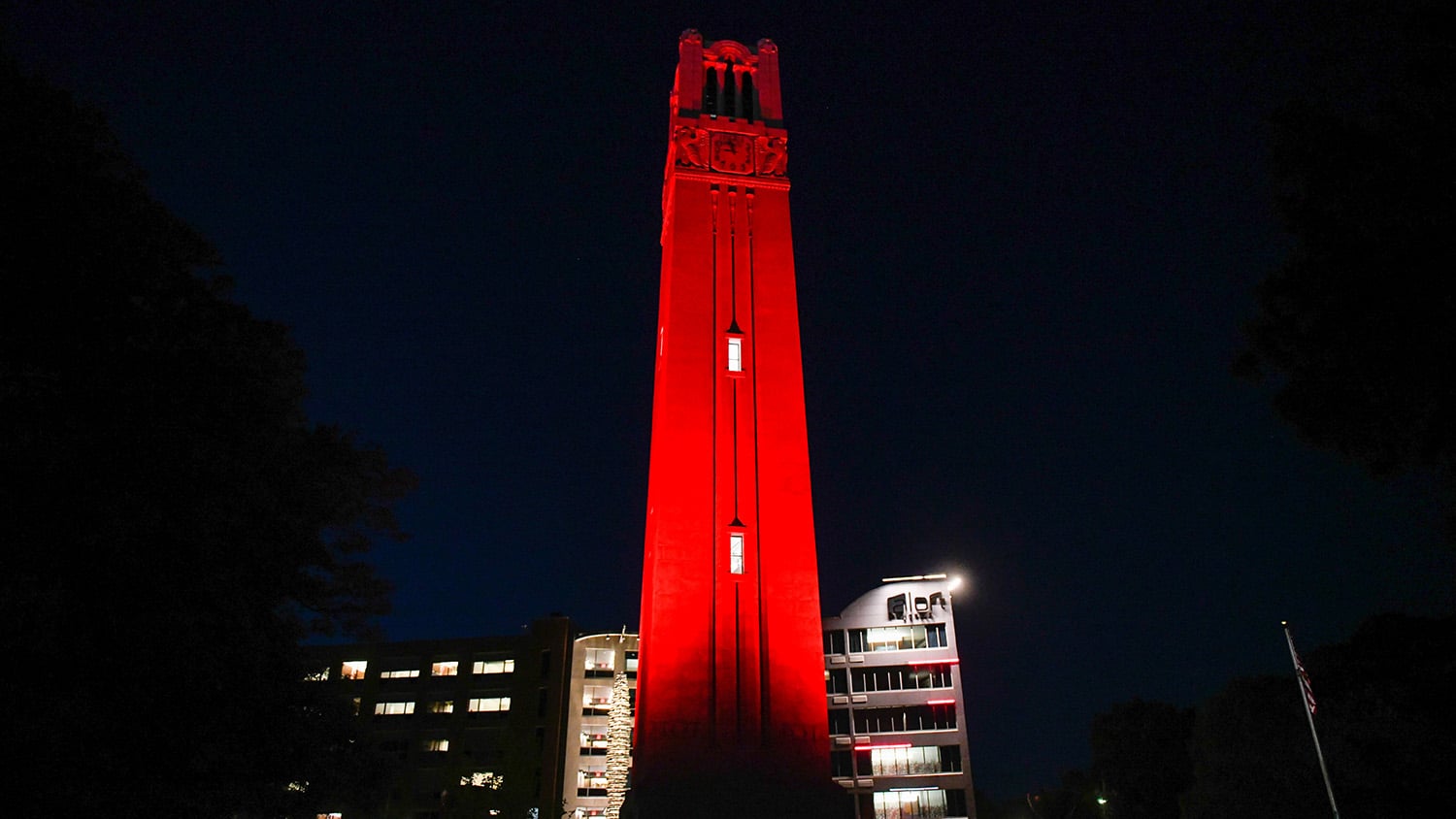Wilson College of Textiles Faculty Member Receives 2024 Outstanding Teacher Award

For Januka Budhathoki-Uprety, teaching — and learning — are defined by those “lightbulb moments.”
As a graduate student studying organic chemistry, hers came in finding a fascination with polymers, and learning about how their structure and behavior makes up nearly everything we see and touch.
“They’re ubiquitous,” she still marvels.
While teaching undergraduate chemistry, she found an even stronger passion for those moments of illumination in watching her students grasp a challenging concept.
“When students learn new things, I see that lightbulb moment on their face,’” Budhathoki-Uprety says. “It was very rewarding to see how they learn over time, grow both personally and professionally, and how they were able to navigate the path to success.”
It’s safe to say those moments have only grown with time.
2024 Outstanding Teacher Award recipient
Five years into a career as an assistant professor at the Wilson College of Textiles, Budhathoki-Uprety recently learned she has been recognized as a 2024 recipient of the university’s Outstanding Teacher Award.
Awarded by the executive vice chancellor and provost, the award recognizes excellence in teaching at all levels of higher education.
“I’m honored,” Budhathoki-Uprety says of the recognition. “It’s very exciting.”
Was it a huge surprise? Perhaps it shouldn’t have been: the signs have been there.
“Consistently, I get really strong teaching evaluations. And the response rate from my students is really high,” she acknowledges. “I think the positive impact that I have on student learning, the students and my peers recognized that — the impact that my teaching had on them, to set them on a path to success.”
A relentless pursuit of student learning
Being recognized for her teaching prowess is no small feat, considering the immense challenge students face in her courses.
Budhathoki-Uprety teaches polymer chemistry. Though it’s a topic, to her point, made up of materials that touch every aspect of our lives, the subject matter can be particularly difficult for students to grasp.
“Teaching that concept is really challenging, because many students find it hard to digest that information at the molecular level,” she explains.

But her colleagues seem to believe she’s found a uniquely successful way to do just that.
“It is clear the compassion and understanding Dr. Budhathoki-Uprety gives her students … besides delivering the teaching material the best way possible,” wrote Associate Professor Nelson Vinueza in a letter supporting Budhathoki-Uprety’s nomination for the award.
“It is not only providing more time to complete an assignment,” Vinueza continued. “It is, more genuinely, caring and looking for student success.”

In her own words, Budhathoki-Uprety says her teaching philosophy centers around incorporating real-world examples of topics that might seem abstract in a vacuum.
On any given day, that might be physically showing off a product relevant to the topic at hand. Or, she might screen an explainer video devised by another expert in the industry.
“I use a lot of different types of tools and techniques in teaching,” Budhathoki-Uprety admits. “Not only classical lecture, standard textbook, but I also use contemporary research articles to show how the field is advancing, and molecular models that will help students visualize the structure of molecules and how that can participate in a chemical reaction.”

It’s an approach that’s garnered accolades from students.
“This approach allowed us to appreciate the practical significance of our studies,” wrote Cynthia Melissa Salcedo Chavez, a former graduate student of Budhathoki-Uprety. “What truly set Dr. Budhathoki-Uprety apart was her commitment to connecting classroom learning with real-world applications.”
Another student, Emma Myer-Medina, touted Budhathoki-Uprety’s ability to break down complex topics in her “meticulously planned out” classes.
“She went through each topic with extreme attention to detail and was able to communicate complex ideas in ways that were engaging and easy to understand,” Myer-Medina wrote in her own letter of support.
Hopeful for the future
An expert in polymer science, nanotechnology, medical textiles and textile chemistry, Budhathoki-Uprety began her teaching career at NC State in 2019 after earning her bachelor’s and master’s degrees in Chemistry at Tribhuvan University in Nepal. She later earned her master’s in chemistry at Western Carolina University, and ultimately her Ph.D. in Chemistry from NC State’s Department of Chemistry. She conducted her post-doctoral research on nanotechnology and nanomedicine at Memorial Sloan Kettering Cancer Center, New York.
All those achievements, though — this latest award among them — pale in comparison to the satisfaction Budhathoki-Uprety feels in molding the next generation of students for a field she sees as critical to our future.
“Developing the future pipeline,” as she puts it. “So that they can make our society better as we go further with more efficient material; more sustainable work.”
But she’s equally quick to credit her own mentors, whose lessons, she says, shaped her own teaching philosophy today.
“And I’m also grateful to my students, without whose support and collaboration it would not have been possible,” she adds. “To be a successful teacher you need to have a successful student — or a student who has a desire to succeed.”
This post was originally published in Wilson College of Textiles News.
- Categories:


